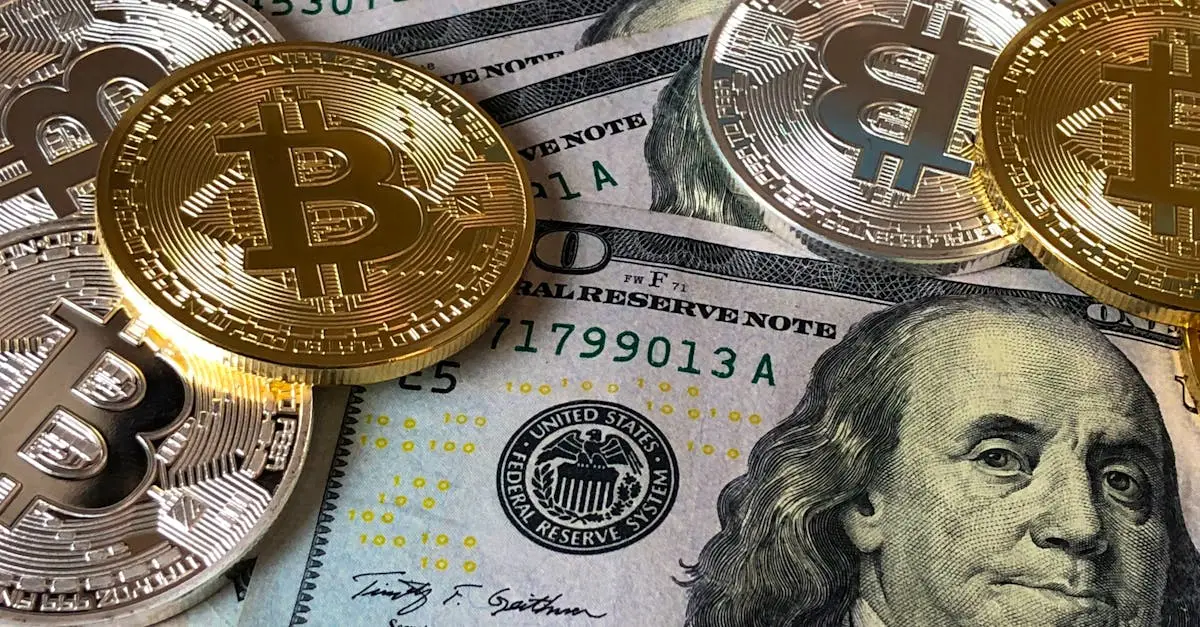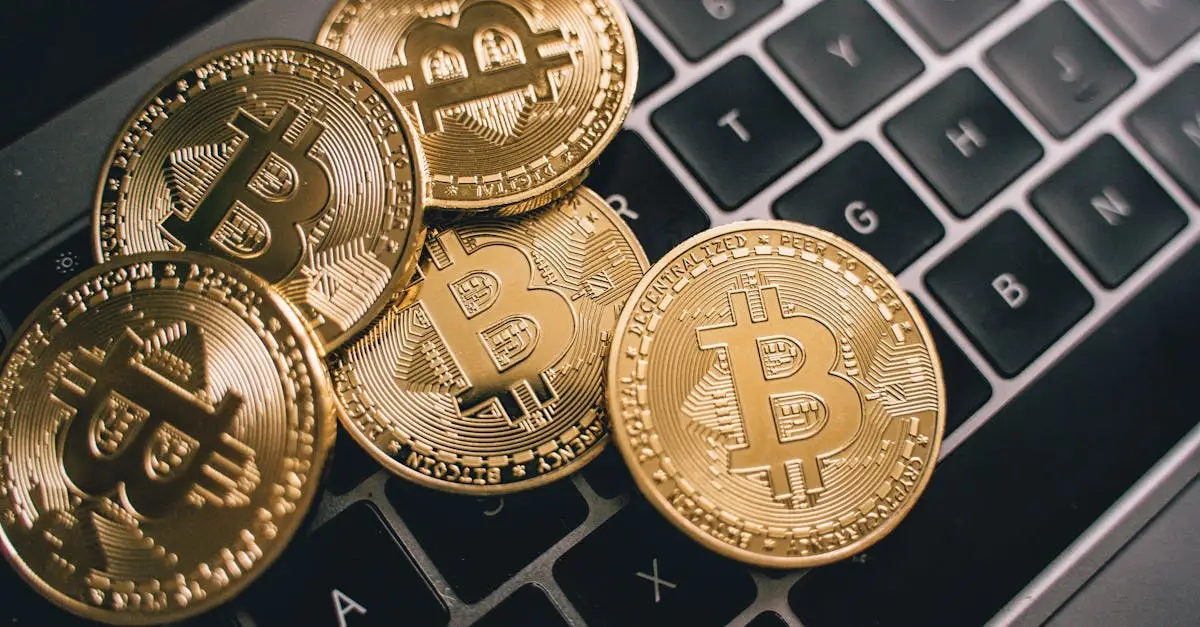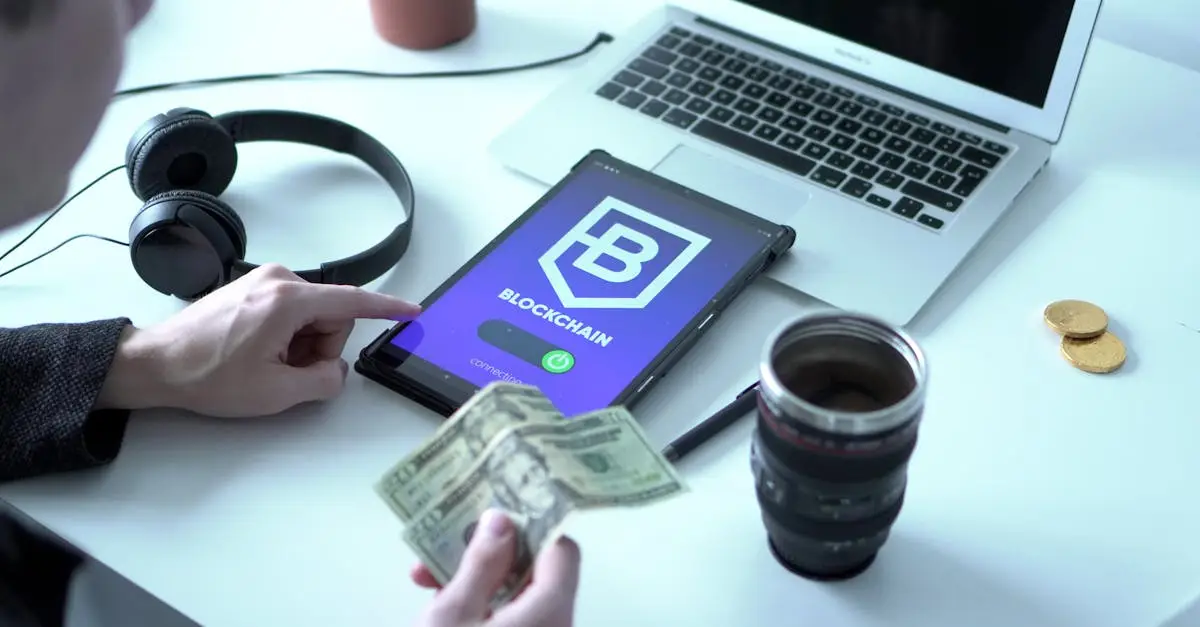Blockchain Security: Safeguarding Crypto. Assets
In the world of digital finance, Blockchain. technology has emerged as a transformative force, offering secure and transparent solutions for a variety of applications. At the core of this innovation lies the concept of Blockchain., a decentralized and distributed ledger that records transactions across a network of computers. As the popularity of cryptocurrencies continues to rise, ensuring the security of digital assets has become a paramount concern. This article delves into the intricacies of Blockchain. security, exploring its role in safeguarding Crypto. assets and mitigating risks in the ever-evolving landscape of digital finance.
- Understanding the fundamentals of blockchain and its decentralized nature
- Exploring real-world applications of blockchain in finance and supply chain management
- The role of cryptography in securing blockchain transactions
As Blockchain. technology continues to revolutionize various industries, its impact on financial transactions and supply chain management has been profound. By enabling secure, immutable, and transparent record-keeping, Blockchain. plays a crucial role in enhancing operational efficiency and reducing fraud. The integration of Blockchain. in financial systems ensures accountability and trust among stakeholders, while its application in supply chains provides provenance tracking and quality assurance for goods and services.
- Smart contracts and their impact on automating agreements
- Integrating blockchain technology in healthcare for secure medical records management
- Challenges and opportunities of using blockchain for voting systems
Cyber Threats and Vulnerabilities in Crypto Transactions
The world of Crypto is evolving rapidly, offering innovative solutions for digital transactions. However, with this evolution comes a new set of challenges and risks. Understanding the Crypto landscape is crucial in navigating through potential cyber threats and vulnerabilities.
The Rise of Cyber Threats
As Crypto gains widespread popularity, it also attracts cybercriminals seeking to exploit vulnerabilities in the system. One of the main cyber threats facing the Crypto community is hacking. Hackers use various techniques to gain unauthorized access to digital wallets and exchanges, jeopardizing the security of transactions and personal information.
Protecting Your Investments
When engaging in Crypto transactions, it is essential to implement robust security measures to safeguard your investments. Utilizing secure and reputable Crypto exchanges, enabling two-factor authentication, and regularly updating your wallets are effective ways to enhance security and protect your digital assets.
Counteracting Cyber Threats
As the Crypto market continues to expand, it is crucial for users to stay informed about emerging cyber threats and vulnerabilities. Educating yourself about the latest security practices and staying vigilant against phishing scams and malware attacks can significantly reduce the risk of falling victim to cyber threats.
Enhancing Security Measures
Enhancing security measures within the Crypto ecosystem is a collective effort that involves cooperation between users, exchanges, and regulatory bodies. Implementing industry best practices, conducting regular security audits, and fostering a culture of cybersecurity awareness are essential steps in mitigating cyber threats and protecting the integrity of Crypto transactions.
Role of Encryption and Decentralization in Protecting Crypto Data
When it comes to safeguarding sensitive information in the digital realm, the utilization of encryption and decentralization plays a crucial role, especially in the realm of Crypto. By employing robust encryption methods and decentralizing data storage, individuals and organizations can enhance the security and privacy of their Crypto assets.
The Significance of Encryption in Crypto
Encryption is the process of encoding information in such a way that only authorized parties can access it. In the world of Crypto, this translates to securing transactions and data through cryptographic algorithms. Through the use of encryption, Crypto holders can ensure that their digital assets are protected from unauthorized access and cyber threats.
The Role of Decentralization in Crypto Security
Decentralization involves distributing data across a network of computers rather than storing it in a central location. This concept is fundamental to many Crypto platforms and helps enhance security by eliminating single points of failure. In the event of a cyber attack or system failure, decentralized Crypto networks are more resilient and less vulnerable to data breaches.
Implementing Encryption and Decentralization in Crypto Systems
When it comes to protecting Crypto data, combining encryption and decentralization is a powerful strategy. By encrypting transactions and data at every stage and utilizing decentralized networks for storage, Crypto users can significantly reduce the risk of unauthorized access and data manipulation.
Here are some key steps to implement encryption and decentralization in Crypto systems:
- Choose reliable encryption algorithms to secure data.
- Utilize decentralized platforms for Crypto transactions.
- Regularly update encryption protocols to stay ahead of potential threats.
Ensuring Data Security in the Crypto Era
As the Crypto landscape continues to evolve, prioritizing data security is paramount. Encryption and decentralization are essential tools in mitigating risks and protecting digital assets from malicious actors. By understanding the role of encryption and decentralization in securing Crypto data, individuals and organizations can navigate the digital realm with greater peace of mind.
If you want to delve deeper into the importance of encryption and decentralization in safeguarding Crypto data, check out this insightful resource: Role of Encryption and Decentralization in Protecting Crypto Data.
Best Practices for Securing Blockchain-based Crypto Wallets
When dealing with Crypto, securing your assets is paramount. Blockchain-based Crypto wallets offer a secure way to store your digital currencies, but they also come with their own set of risks. By following best practices, you can ensure that your Crypto holdings are safe and protected.
The Importance of Wallet Security
Before delving into specific security practices, it’s essential to understand why securing your Crypto wallet is crucial. Crypto transactions are irreversible, meaning that once a transaction is completed, it cannot be undone. This makes Crypto a prime target for cybercriminals looking to exploit vulnerabilities and steal digital assets. By implementing stringent security measures, you can significantly reduce the risk of falling victim to theft or hacking attempts.
Use Hardware Wallets
One of the most secure ways to store your Crypto is by using a hardware wallet. Hardware wallets are physical devices that store your private keys offline, making them nearly immune to hacking attempts. These wallets are considered one of the safest options for long-term Crypto storage, as they offer an extra layer of protection against online threats.
Enable Two-Factor Authentication
Adding an extra layer of security to your online Crypto accounts is crucial in safeguarding your funds. Two-factor authentication (2FA) is a simple yet effective way to prevent unauthorized access. By requiring a second form of verification, such as a code sent to your phone, you can ensure that only you can access your account, even if your password is compromised.
Regularly Update Your Software
Keeping your Crypto wallet software up to date is essential for maintaining security. Developers frequently release updates to patch vulnerabilities and strengthen defenses against emerging threats. By regularly updating your wallet software, you can protect your assets from known security risks and stay ahead of potential attacks.
Practice Safe Browsing Habits
Phishing attacks are a common method used by cybercriminals to steal sensitive information, including Crypto credentials. To mitigate the risk of falling victim to phishing scams, practice safe browsing habits. Avoid clicking on suspicious links, double-check website URLs before entering any login information, and be cautious of unsolicited emails asking for personal details.
By following these best practices for securing your blockchain-based Crypto wallets, you can minimize the risk of unauthorized access and protect your digital assets from potential threats.
Best Practices for Securing Blockchain-based Crypto Wallets
Frequently Asked Questions
What is a blockchain-based crypto wallet?
A blockchain-based crypto wallet is a digital wallet that allows users to store, receive, and send cryptocurrencies securely on a blockchain network. It consists of a public address for receiving funds and a private key for accessing and managing the stored assets.
How can I enhance the security of my blockchain-based crypto wallet?
To improve the security of your crypto wallet, follow these best practices:
- Use a hardware wallet for an extra layer of protection.
- Enable two-factor authentication for account access.
- Keep your private keys offline and in a secure location.
- Regularly update your wallet software to the latest version.
What are the risks associated with crypto wallets?
Some common risks associated with crypto wallets include:
- Loss of funds due to hacking or phishing attacks.
- Forgetting or losing the private keys, leading to loss of access to the wallet.
- Security vulnerabilities in the wallet software.
Can I recover funds if I lose access to my blockchain-based crypto wallet?
If you lose access to your crypto wallet due to misplaced keys or device failure, you may not be able to recover your funds. It’s crucial to keep backups of your private keys in secure locations to prevent permanent loss.
Are there any resources to learn more about securing crypto wallets?
For further information on securing your crypto wallet, you can refer to the following resources:
- Visit the official websites of popular wallet providers for security guidelines.
- Explore online forums and communities dedicated to crypto security best practices.
- Consult with crypto security experts or professionals for personalized advice.
What should I do if my blockchain-based crypto wallet is compromised?
If you suspect that your crypto wallet has been compromised, take immediate action by:
- Isolating the affected device from the internet to prevent further access.
- Notifying the wallet provider and considering transferring funds to a new secure wallet.
- Reviewing your transaction history for any unauthorized activity.
How often should I update the security settings of my blockchain-based crypto wallet?
It is recommended to review and update the security settings of your crypto wallet regularly, at least once every few months. Additionally, stay informed about any security patches or updates released by the wallet provider.
Conclusão
Blockchain technology has revolutionized the way we perceive security and transparency in various sectors. Through its decentralized nature, cryptography, and smart contracts, crypto assets are safeguarded in a manner that was previously thought to be impossible. As we explored real-world applications in finance, supply chain management, healthcare, and voting systems, it became evident that blockchain offers immense potential for efficiency, traceability, and security.
One of the most significant takeaways from this discussion is the pivotal role of encryption and decentralization in protecting sensitive crypto data. By leveraging cryptographic algorithms and the distributed nature of blockchain networks, users can enjoy a high level of security and privacy for their transactions and digital assets.
Moreover, the rise of Initial Coin Offerings (ICOs) and the emergence of regulatory frameworks have highlighted both the opportunities and challenges in the crypto market. While ICOs provide innovative fundraising opportunities, government involvement aims to ensure investor protection and market stability. Finding the right balance between innovation and regulation is key to sustainable growth in the blockchain space.
Looking ahead, the industry is witnessing a shift towards asset digitization, tokenization, and the adoption of decentralized finance (DeFi) solutions. These trends not only enhance accessibility and liquidity but also present new challenges in terms of security and financial governance.
- Ensuring secure medical records management through blockchain encryption
- Empowering patients with ownership and control over their health data
- Utilizing smart contracts to streamline supply chain processes
- Enhancing transparency and security in financial transactions
- Implementing best practices for securing blockchain-based crypto wallets
By understanding the role of blockchain in these various contexts and implementing best practices for security, organizations and individuals can harness the full potential of crypto technology while mitigating risks. As the industry continues to evolve, staying informed about emerging trends, regulatory changes, and technological advancements will be essential for navigating the dynamic landscape of blockchain security.
For further in-depth insights into securing your crypto assets and staying updated on the latest trends in blockchain technology, explore our collection of top e-books on Crypto.

I am Ethan Grant, a finance and cryptocurrency enthusiast with over a decade of involvement in the financial sector. My journey began with a passion for investment strategies, market analysis, and digital assets. Since then, I have dedicated my time to helping others navigate the complexities of the financial world. My insights are based on practical knowledge and a deep understanding of market trends, which allows me to offer valuable and reliable guidance.
Over the years, I have had the opportunity to work with several investment firms, which has further fueled my passion for cryptocurrencies and blockchain technology. I believe that digital assets have the power to promote financial independence, and today, I share my experiences and knowledge through articles, market analyses, and investment tips on Cryptofinanceinsider.
As an author, my commitment is to inform in the best way possible about the world of finance. I enjoy addressing topics in a straightforward and honest manner, which I believe resonates with both beginners and experienced investors. My goal is to make complex financial concepts more accessible to everyone.







